In the world of feline companionship, our choices for their well-being extend beyond mere sustenance. Our feline friends often spark our curiosity about the foods that grace our plates with their curious whiskers and discerning taste buds. One such herb that finds its way into our culinary ventures is dill.
However, the question arises whether cats can eat dill. In this article, we delve potential effects of dill on our cats’ health.
Dill’s Culinary and Medicinal Legacy
With its feathery green leaves and distinct aroma, Dill has long been cherished in kitchens worldwide. It’s a staple in various cuisines, enhancing the flavors of dishes with its fresh and slightly tangy taste. From dill pickles to creamy sauces, the herb’s versatility has earned it a reputation as a culinary essential.
Medicinal Merits. Beyond its culinary applications, dill has a rich history of medicinal uses. Ancient civilizations recognized its potential to soothe digestive discomfort and ease colic. Dill’s essential oils were employed in traditional medicine for their potential anti-inflammatory and anti-microbial properties. This herb’s diverse history highlights its potential benefits beyond taste.
Dill’s Nutritional Profile and Potential Benefits for Cats
Dill isn’t just a flavorful addition to dishes; it also brings a range of essential nutrients. Rich in vitamins like A and C, dill contributes to your feline friend’s overall health and immune function. Its mineral content, including manganese and iron, plays a role in supporting various bodily functions.
Digestive Support Potential for Cats:
One of the potential benefits of dill for cats lies in its digestive support. Just as it was used historically to ease digestive discomfort in humans, dill’s carminative properties might relieve our feline companions. The herb’s gentle nature may aid in reducing stomach upset and promoting healthy digestion.
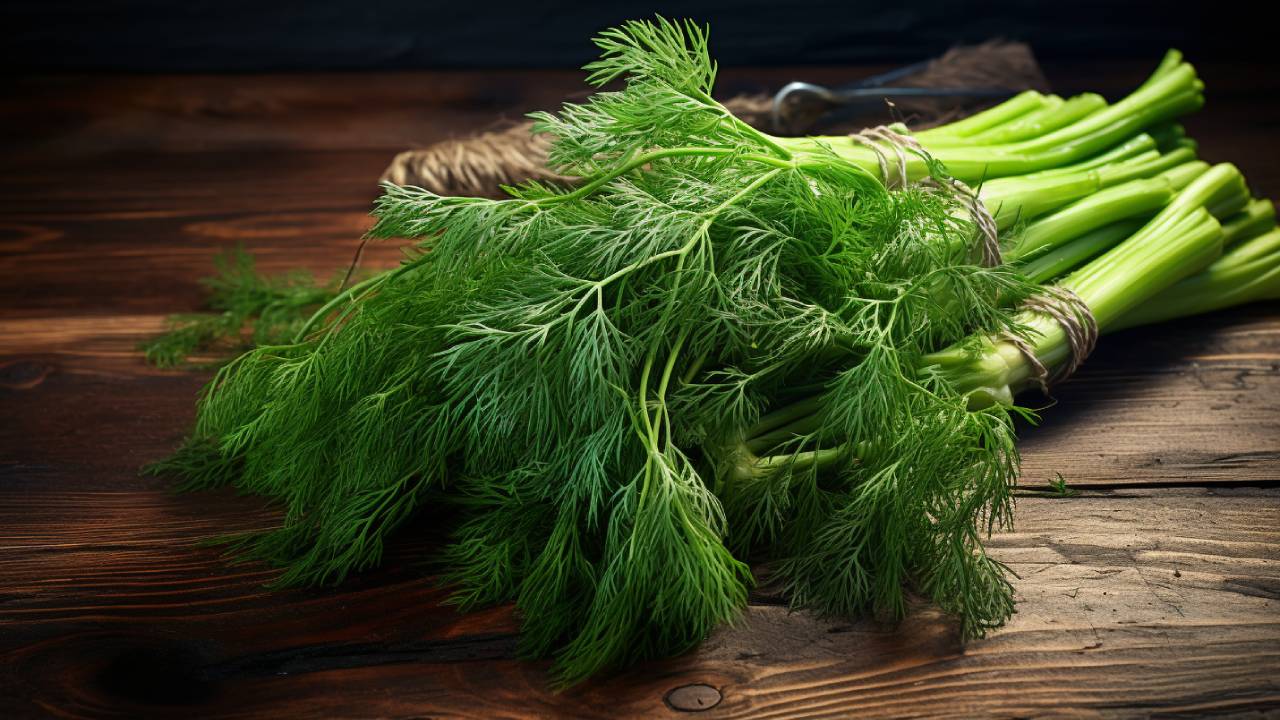
Dill’s Dark Side: When Is It Bad for Cats?
As we tread the path of feline nutrition, we must acknowledge that not all human foods are safe for our furry friends. While dill boasts many potential benefits, it’s important to recognize situations where it could be bad for cats.
- Toxicity Concerns While dill is generally considered safe in small quantities, excessive consumption could lead to adverse effects in cats. Dill contains compounds known as psoralens, which are photosensitizing agents. These compounds can react with sunlight and cause skin irritation, especially in areas with sparse fur or light pigmentation. Ingesting large amounts of dill might exacerbate this effect and lead to gastrointestinal upset.
- Dill Essential Oil Dill essential oil, derived from the seeds or leaves of the plant, is more concentrated than fresh herbs and poses a higher risk of toxicity. Essential oils can be potent and should be handled with extreme care around pets. Ingestion of dill essential oil can lead to digestive upset, skin irritation, and other adverse reactions. Therefore, it’s crucial to avoid exposing your cat to dill essential oil orally and topically.
Do Cats Like Dill?
While dill’s safety is of primary concern, another question is whether cats like dill. Cats have unique palates and preferences, and their relationship with certain herbs can vary. Dill’s intense aroma might attract some cats’ attention, leading them to sniff or nibble on it out of curiosity.
However, the strength of Dill’s scent could also repel some cats. Cats’ reactions to dill can vary widely. Some cats might show interest in the herb, while others may not exhibit any particular inclination. Observing your cat’s behavior around dill ensures exposure is controlled and limited.
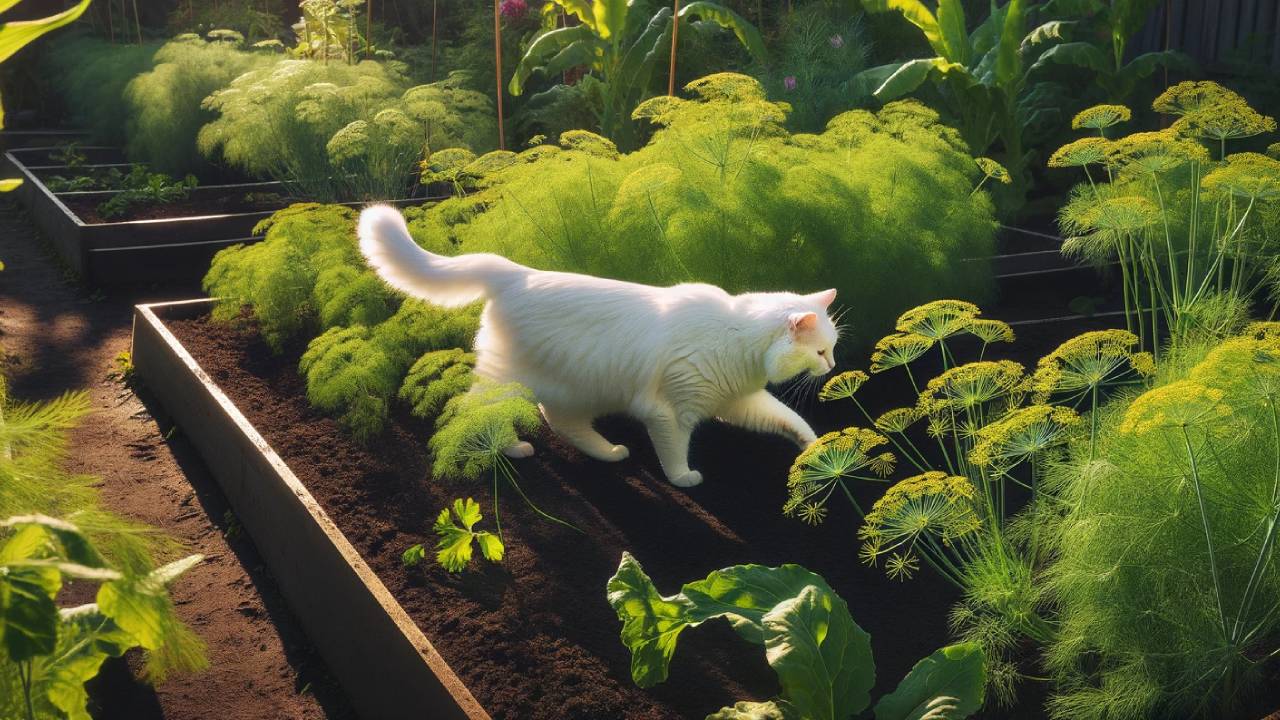
Precautions and Safe Practices
Taking precautions and following safe practices is paramount when introducing new food or herbs into your cat’s diet. While potentially offering benefits, Dill should be incorporated thoughtfully to ensure your cat’s well-being.
1. Avoiding Excess Dill Consumption. While dill may hold promise regarding its potential nutritional benefits for cats, it’s crucial to remember that moderation is essential. As with any new food, introducing dill gradually and in small amounts is the best approach.
2. Consulting Veterinary Expert Guidance on Dill. Before adding dill or any new ingredient to your cat’s diet, it’s highly recommended to consult your veterinarian. A veterinarian familiar with your cat’s health history can provide valuable insights into whether dill suits your feline friend.
3. Balancing Dill in Your Cat’s World. Consider incorporating dill to stimulate your cat’s senses without exposing them to potential risks. For instance, you might place fresh dill leaves in a safe, controlled area where your cat can interact with them under supervision.
This allows your cat to explore and experience the herb’s scent without ingesting it. Alternatively, you can introduce dill as a part of sensory enrichment activities. Creating a safe environment where your cat can interact with Dill in controlled settings can engage their curiosity and provide mental stimulation.
Conclusion
Ultimately, the question of whether dill is safe for cats is multifaceted. It hinges on your cat’s health, preferences, and potential sensitivities. You’re fostering a harmonious coexistence between your feline friend and this aromatic herb by approaching dill with an informed and cautious mindset, consulting your veterinarian, and prioritizing your cat’s safety and well-being.
As you continue to explore and enrich your cat’s world, you’re contributing to their overall health and happiness, creating a bond that’s as unique and special as your feline companion. Remember that every cat is unique. What works well for one cat might not be suitable for another. Your cat’s well-being is at the forefront of your decisions, and your careful consideration of their diet and enrichment activities reflects your commitment to their happiness and health.

FAQs
Can I give my cat dill as a natural remedy?
Using dill as a natural remedy for cats is not recommended. Cats have unique dietary requirements, and relying on veterinary-approved treatments for health issues is safer.
Can cats develop allergies to dill?
While rare, some cats might develop sensitivities or allergies to dill. If you notice any unusual symptoms after being introduced to dill, consult your vet for guidance.
Can I use dill to encourage my cat to eat?
While dill’s aroma might entice humans, cats have different taste preferences. It’s advisable to offer foods designed for cats rather than relying on human foods to entice them.
Can dill help with my cat’s bad breath?
Dill’s aromatic properties might offer mild breath-freshening effects, but it’s not a substitute for proper dental care.
Can I use dill to make a cat-safe herbal tea?
While herbal teas can be soothing for humans, cats have different digestion processes. It’s best to consult your vet before offering any herbal preparations.
Can I use dill as a natural remedy for my cat’s anxiety?
Dill is not a proven remedy for anxiety in cats. Always consult your vet before trying alternative treatments for your cat’s well-being.


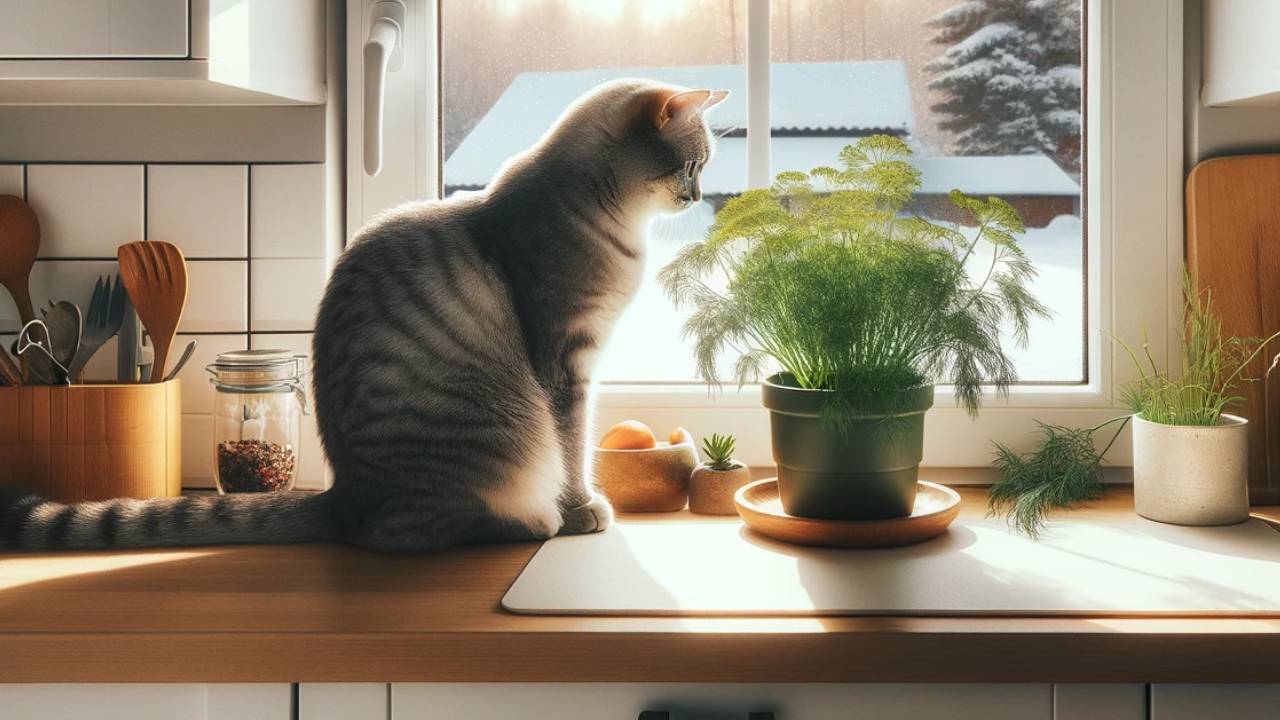
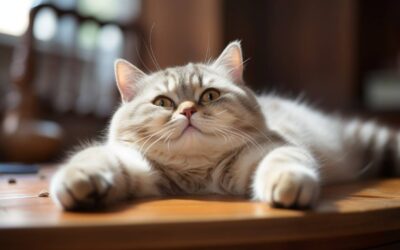
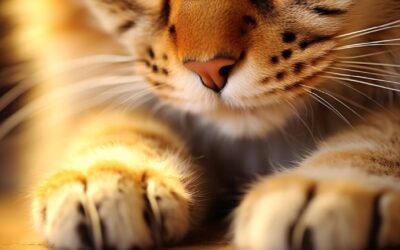
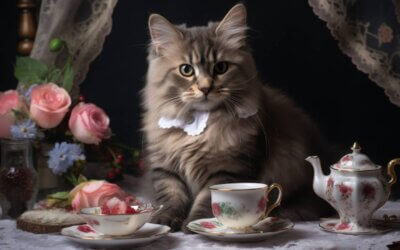
I grow dill in my garden
I’ve got a little herb garden, and my cat sometimes nibbles on the dill. Good to know it’s safe for her,